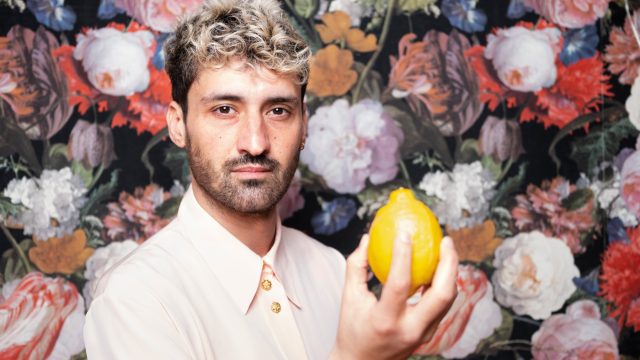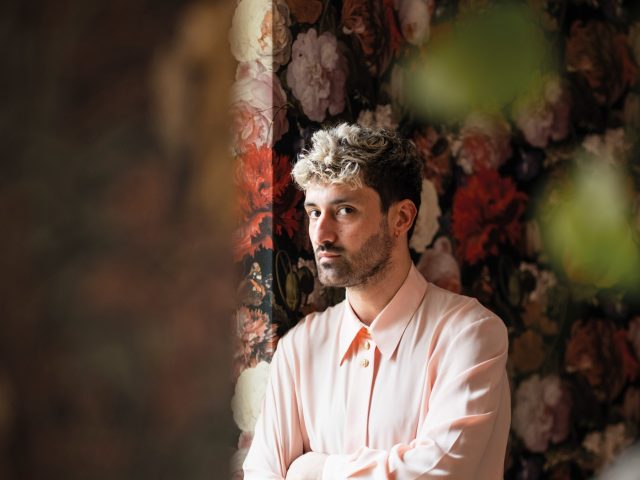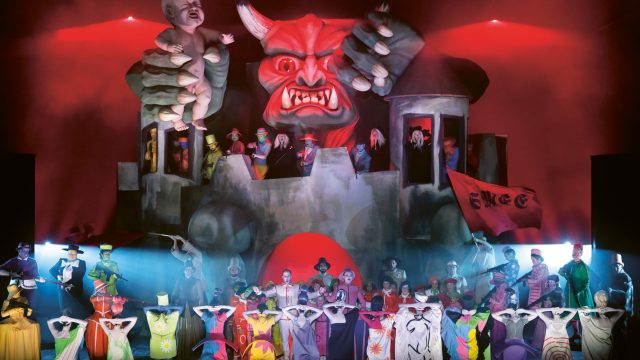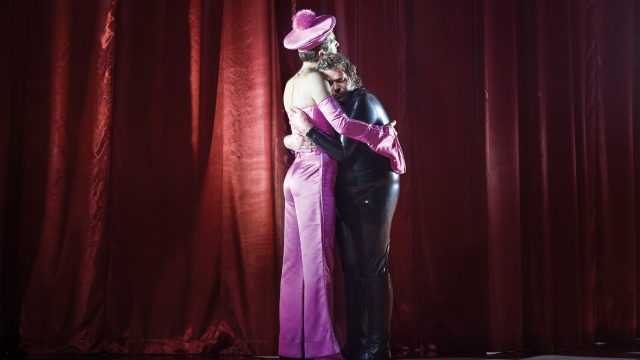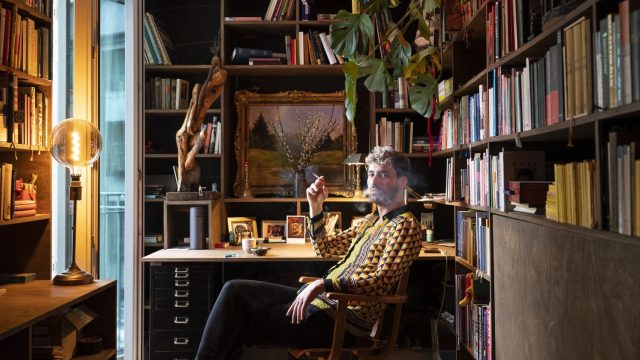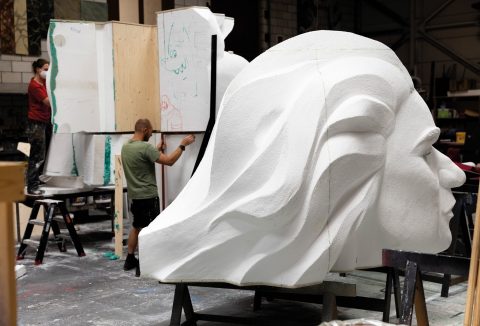Turbo
Till Briegleb managed to convince his fellow judges and Tyrannis' invitation to the Berliner Theatertreffen in 2016 put a turbo on Mondtag's theatre career. Which, however, had started with fits and starts. Briegleb: ‘Ersan had enrolled in directing school at the Otto-Falckenberg-Schule in Munich after secondary school, but broke it off prematurely because he couldn't ground himself in the school system.’ Instead, he went on to direct rebellious performances on the streets with his own Kapitæl 2 Kolektif. Dressed in burkas, he and his companions took up post at the shooting range at Oktoberfest, for example. In 2014, he shot a cartoon about Turkish president Erdogan, who, wearing a grotesque mask as a power-hungry despot, gets excited about unflattering newspaper articles.
‘From the very beginning, Ersan's work has had a political slant,’ Till Briegleb explains. Where that commitment comes from? 'Ersan has charisma and esprit and he is extremely interested in what is going on in the world. Then, I think, you can't help but develop a political attitude. But he is sovereign in that and above all never didactic. He does want to offer ideas through his work, but the political and the poetic always go hand in hand. His pieces are also always highly entertaining.'
Mondtag would be invited to the Berliner Theatertreffen twice more after Tyrannis, in 2017 with Die Vernichtung (Theater Bern) and in 2019 with Das Internat (Schauspiel Dortmund). A major achievement for a beginning director, which immediately put him on the map in Germany and beyond. Briegleb: ‘All the intendants wanted to work with him. He was on a positive wave. In the years that followed, Ersan directed for the biggest stages in Germany and after about five years he was ready to make the leap to opera.'
